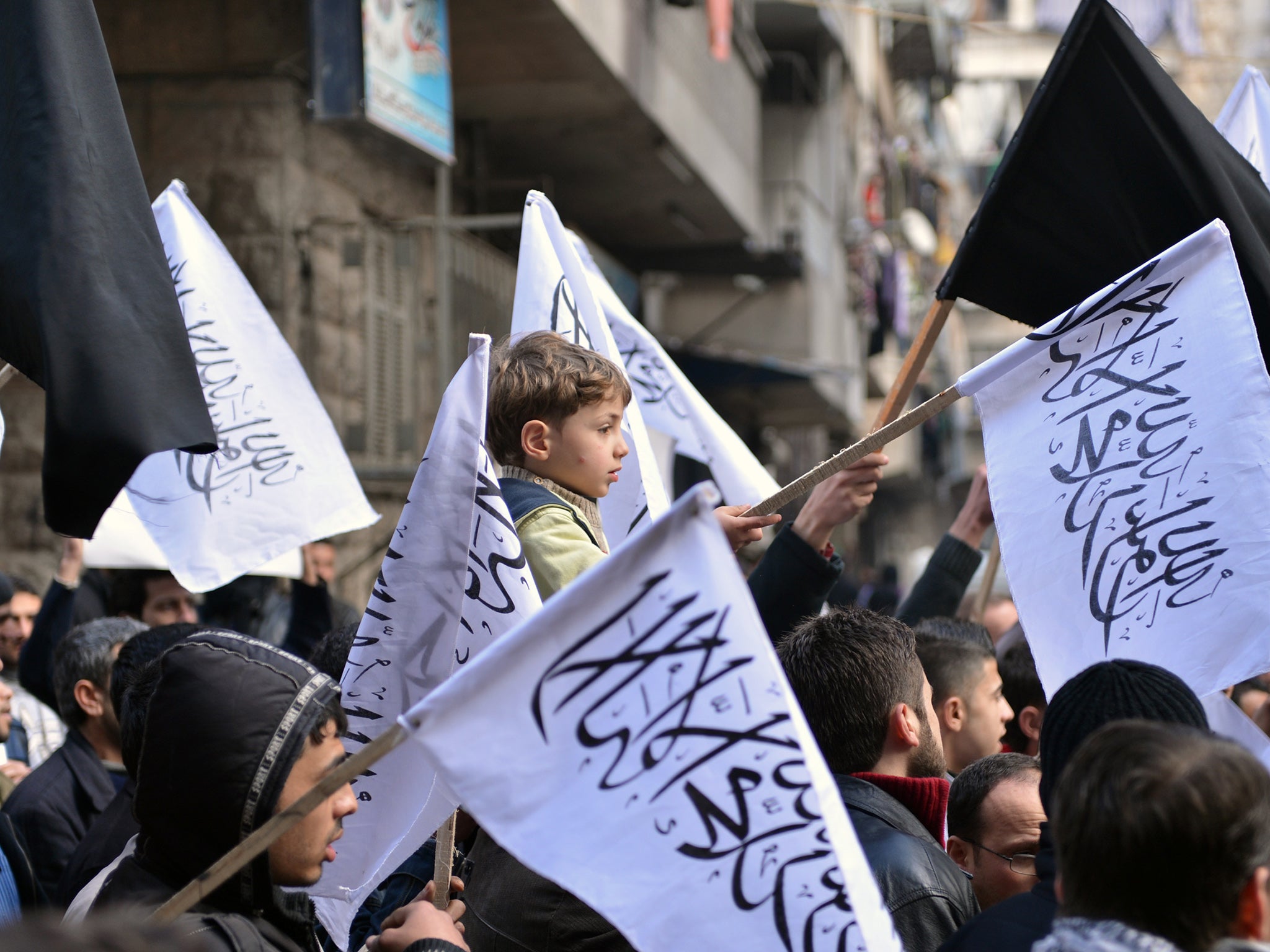Syria civil war: Al-Qaeda offshoot Jabhat al-Nusra says ceasefire is a 'trick'
Abu Mohammad al-Jolani calls on armed groups to intensify their attacks against President Bashar al-Assad and his allies

Your support helps us to tell the story
From reproductive rights to climate change to Big Tech, The Independent is on the ground when the story is developing. Whether it's investigating the financials of Elon Musk's pro-Trump PAC or producing our latest documentary, 'The A Word', which shines a light on the American women fighting for reproductive rights, we know how important it is to parse out the facts from the messaging.
At such a critical moment in US history, we need reporters on the ground. Your donation allows us to keep sending journalists to speak to both sides of the story.
The Independent is trusted by Americans across the entire political spectrum. And unlike many other quality news outlets, we choose not to lock Americans out of our reporting and analysis with paywalls. We believe quality journalism should be available to everyone, paid for by those who can afford it.
Your support makes all the difference.The leader of al-Qaeda’s Syrian offshoot urged rebel fighters to reject an international ceasefire, hours before the truce was due to come into force.
Abu Mohammad al-Jolani, head of Jabhat al-Nusra, called on armed groups to intensify their attacks against President Bashar al-Assad and his allies, warning that the planned cessation of hostilities was a “trick” by the West to push Syrians “back under the thumb of the oppressive regime”.
His faction, one of the most powerful fighting forces in Syria, is excluded from the deal struck between the US, Russia and other major powers that was due to begin at midnight local time (10pm GMT) on 26 February. Attacks against Isis are also exempt.
The call from Jolani highlights the challenges facing those seeking an end to a conflict that has claimed an estimated 470,000 lives and forced 12 million people from their homes.
While Syria’s official opposition delegation announced that 97 rebel factions would cease fighting for two weeks, Nusra remains one of the most important groups on the ground. It operates alongside more moderate forces in the north and west of Syria, making it difficult to differentiate between areas included in or excluded from the deal.
Several opposition news sites reported this week that Nusra had withdrawn fighters from the Idlib town of Sarmada to remove a “pretext” for attacks by the Russian and Syrian air forces. But rebels and opposition activists warned that Russia would use the group’s exemption from the truce as an excuse to continue to strike rebel-held areas.
Intense fighting continued across the country yesterday as all sides sought to make gains before the deadline. With mistrust on all sides, few were optimistic about the deal, which has been signed not by the warring parties, but only by their international backers.
Questions remain about monitoring. Syria and Russia have promised to continue attacks on “terrorist” targets. Turkey, which has been shelling Kurdish militias in northern Syria, has said that it will not be bound by the deal if its security is threatened.
Join our commenting forum
Join thought-provoking conversations, follow other Independent readers and see their replies
Comments